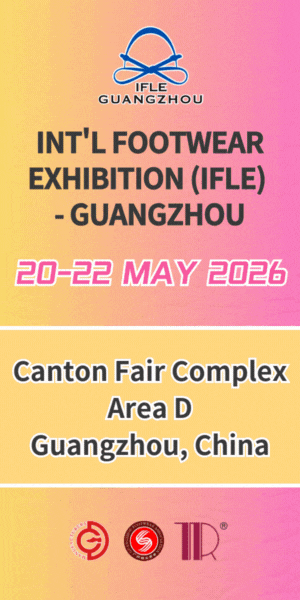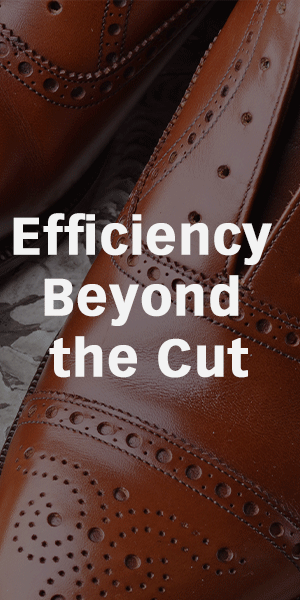Scalable, biodegradable midsole materials

An almost three-year quest at OrthoLite’s Cirql division to add a biodegradable midsole material to its recyclable offering is complete.
It launched Cirql Zero at the end of 2024 and promptly picked up an ISPO BrandNew Award for the innovation. Here, Cirql general manager, Matt Thwaites, explains the work that went into this.
On the face of it, endowing Cirql Zero with durability and also with more than 90% biodegradability within 180 days may seem like a contradiction. What is involved in achieving both at the same time?
Firstly, it is important to note that Cirql Zero is biodegradable in industrial composting conditions. Industrial composting centres will use a very specific blend of soil nutrients, organisms, humidity and temperature conditions to achieve composting. It’s important to note this; consumers will not be able to replicate these conditions in their homes. So that’s point number one: Cirql Zero must be industrially composted. Of equal importance is the amount of testing that has been performed on Cirql Zero. Our products are fully tested for hydrolysis and many other footwear tests to ensure performance throughout the life of the midsole. We invest in rigorous testing to ensure that the shoe Cirql Zero is part of will not be adversely affected by the biodegradable nature of the midsole.
Without giving away any state secrets, what are the main technical differences between Cirql Zero and previous iterations of your midsole materials?
Cirql Zero is a brand-new product, different from anything we have developed prior to this. The team has been working on Cirql Zero rigorously for the last 12 months. It is a different process, a different recipe and a different technology from the other products and iterations that the team has worked on in the past. Cirql Zero is a biodegradable, industrially compostable midsole that is scalable using existing technology in the footwear industry and is affordable. It is in line with the price point of existing cross-linked solutions that are not recyclable or compostable.
What is the current appetite among major footwear brands for compostability and biodegradability in the materials they use? What drives their interest in this?
Every brand that we have spoken to has some form of sustainability goal for their product, whether that be recyclability or compostability. In the past, solutions available to brands were not scalable or affordable, or their greenhouse gas footprint was too high. We’ve worked diligently to ensure that Cirql Zero addresses all of these points, and we have achieved that. It is now our point of difference. The interest level from our global brand partners continues to skyrocket. The demand is driven from the voice of the customer because today’s consumers are very aware of the damage that some products do to the environment. It is widely reported that most of the 28 billion pairs of shoes that are produced every year will end up in landfill sites and will stay there for hundreds of years. Why? Because most of the shoes are made with cross-linked materials that cannot biodegrade. This is what Cirql Zero solves, and we’re so proud of the positive impact we can help our brand partners make with our new midsole material.
How does this compare with demand for recyclability at the moment? In your opinion, what are the roadblocks in footwear recycling that make alternative end-of-life options important?
Some brands are focused on offering a shoe with a fully recyclable story, while others are focused on launching footwear with a compostable story. This is why we offer Cirql rTPU30 for fully recyclable, and Cirql Zero for biodegradable and compostable. The roadblocks for footwear recycling remain twofold. Firstly, shoes are constructed in a way that makes it very difficult to deconstruct them, and they are made from components that are comprised of different raw materials, making it difficult and costly to recycle without deconstruction. The other roadblock is the platforms and recycling centres. These are either very difficult to find or very expensive. More recycling options in each region would make this easier. Cirql will partner both with recycling companies and industrial composting centres all over the world to create efficiencies.
The European Commission’s Ecodesign for Sustainable Product Regulation (ESPR) will soon come into application for large footwear companies, with one of its main aims being to discourage the destruction of unsold products. Our reading of the ESPR guidelines so far is that an unsold shoe could go into the ground if this were “the most environmentally friendly alternative”. Is this good news or bad news for Cirql Zero?
One of the reasons we continue to develop a range of technologies is to support our brand partners in meeting global sustainability regulations. This includes the upcoming ESPR requirements for increased use of recycled materials and improved end-of-life management. While disposal options will depend on the design of the whole shoe, Cirql Zero is focused on delivering key components that align with these evolving requirements well ahead of regulatory timelines. All of this is in support of our brand partners. We are closely monitoring ESPR to ensure that our technologies support compliance pathways that brands are likely to prioritise.
It is coming up on three years since Cirql’s launch and 18 months since your arrival. In that time, how has Cirql’s standing in the footwear materials sector, and in the wider OrthoLite set-up, developed? What are the most important changes that have taken place?
Since joining Cirql, my team has pivoted from a one-product, one-process solution to commercialising two families of products: solutions for fully recyclable and compostable end-of-life streams for footwear. We have invested in new technology and filed multiple patent applications for our new processes. We have also successfully launched our first two products in rTPU30 for recyclability and Cirql Zero for compostability. Additionally, we have gained a great deal of recognition from our brand partners for our Global Recycled Standard (GRS) certification for the Cirql Plant in Vietnam. And, saving the best for last, Cirql was awarded an ISPO BrandNew Award in December 2024, for a concept called ‘Disappearing Shoe’, which uses Cirql Zero. Our global brand partners remain excited and committed to the journey of sustainable midsole solutions. This is an exciting time as we are now starting to develop these midsole solutions for brands.
The manufacturer describes Cirql Zero as a biodegradable, industrially compostable midsole that is “affordable and scalable”, using technology that the footwear industry already has.
Credit: Ortholite/Cirql












